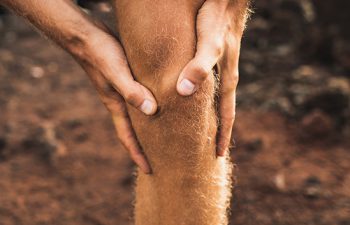Cartilage is the rubbery substance that covers the connecting bones in joints, providing a cushion to reduce friction with movement. All joints have cartilage, but some joints are more susceptible to wear, tear and damage to the cartilage. When cartilage is damaged, joints can become stiff, inflamed and painful. Here is what you need to know about the dangers of cartilage damage and how regenerative medicine can treat cartilage loss.
Causes of Cartilage Damage and Loss
The joints with the most wear and tear are the ones that are most likely to have cartilage damage. Knees are the most common joint for anterior cartilage wear, tear and loss. The constant movement and weight placed on the knees can result in wearing the cartilage thin. Injuries to the knee can cause tears in the cartilage and inflammation in the joints. Other joints that are also prone to cartilage damage include the shoulder, elbow, hip and ankle.
Cartilage loss is progressive. Cartilage does not spontaneously renew, which means once it is worn away, it does not grow back on its own. Inflammation from arthritis can result in faster deterioration of cartilage. Aging causes cartilage to become more brittle and susceptible to damage. Many people middle-aged or older experience some level of cartilage loss in their joints that can cause pain, stiffness and swelling. Small pieces of cartilage can break off in the joint, resulting in locking or popping inside the joint during movement.
Regenerative Medicine for Cartilage Damage
In the past, the only solution for cartilage damage or loss was surgery. Once cartilage is gone, movement of the joint becomes too painful. Surgery to repair cartilage or replace the entire joint can be required. Regenerative medicine offers an alternative to surgery for cartilage damage. Stem cell therapy can help regenerate new cartilage and slow cartilage loss, and PRP injections can promote joint healing and reduce inflammation. While regenerative medicine cannot yet cure arthritis or regrow cartilage back to its youthful state, it can provide relief from pain and slow the progression of arthritis.
At Regenerative Orthopaedics, we offer cutting-edge regenerative medicine treatments for cartilage loss and damage. If you have severe knee, shoulder or elbow pain from cartilage damage, contact our clinic in NYC or White Plains to schedule a consultation with Dr. Steven Struhl.
